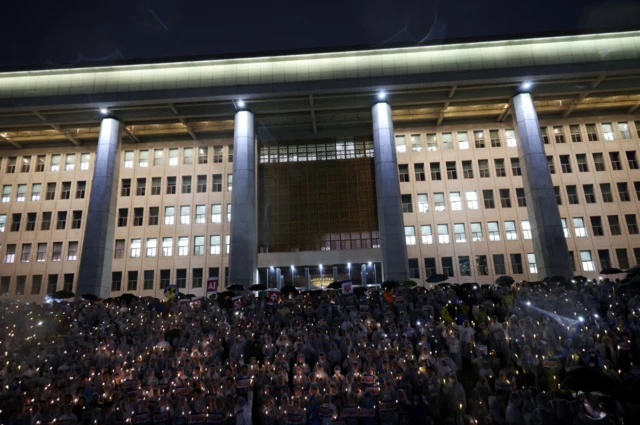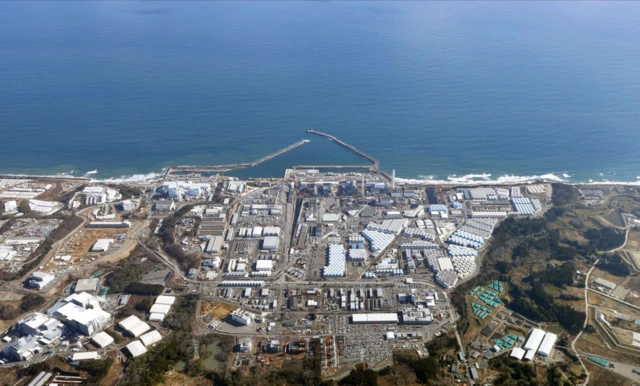Neighbours remain warypublished at 03:02 BST 24 August 2023
Japan has gone to lengths to assure its neighbours the release of the treated water will be safe. The UN regulator has also accepted the plan., external
But not everyone is accepting their word.
Hong Kong and Macau - both Chinese-ruled regions - said they will ban seafood from certain areas, including Tokyo and Fukushima, from today.
China itself has accused Japan of being "selfish". Beijing says it will take "necessary steps" to protect its marine environment, food safety, and public health - although it has not specified what those measures are.
There are also protests in South Korea by its major opposition party and civic groups, while some island nations in the Pacific are also opposed on the other side of the ocean.
 Image source, Reuters
Image source, ReutersA candlelight protest against Japan's release was held in South Korea's capital Seoul last night

